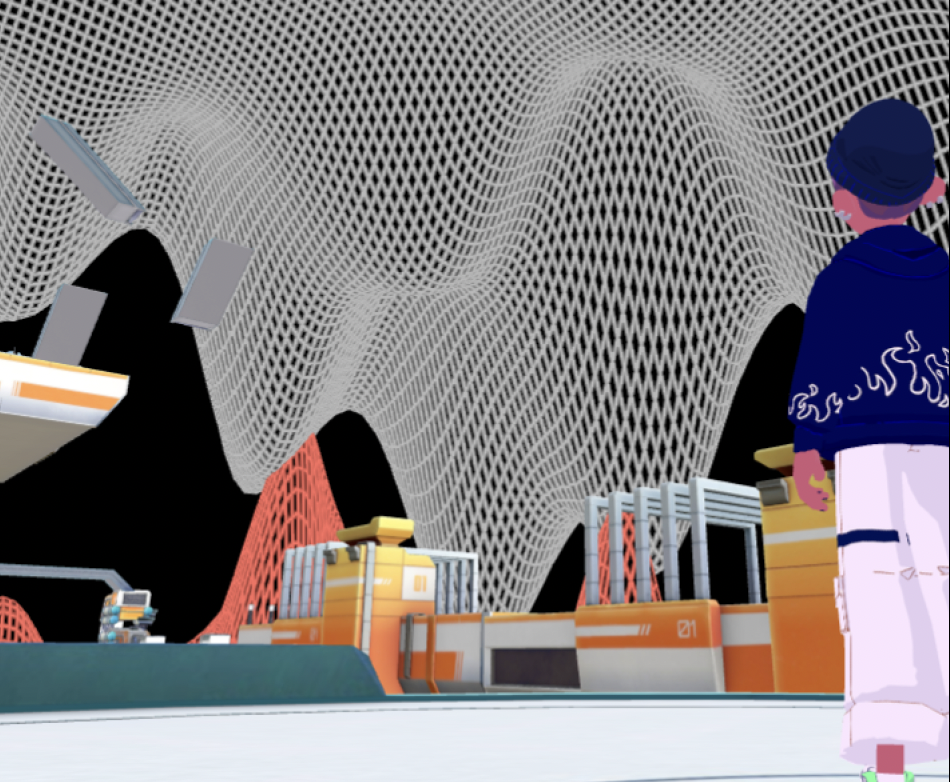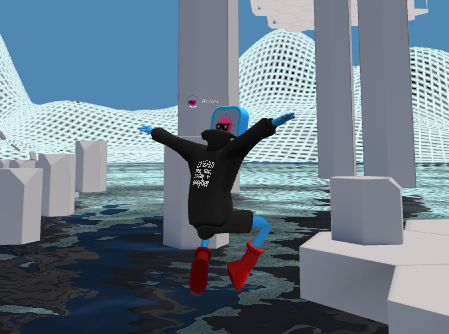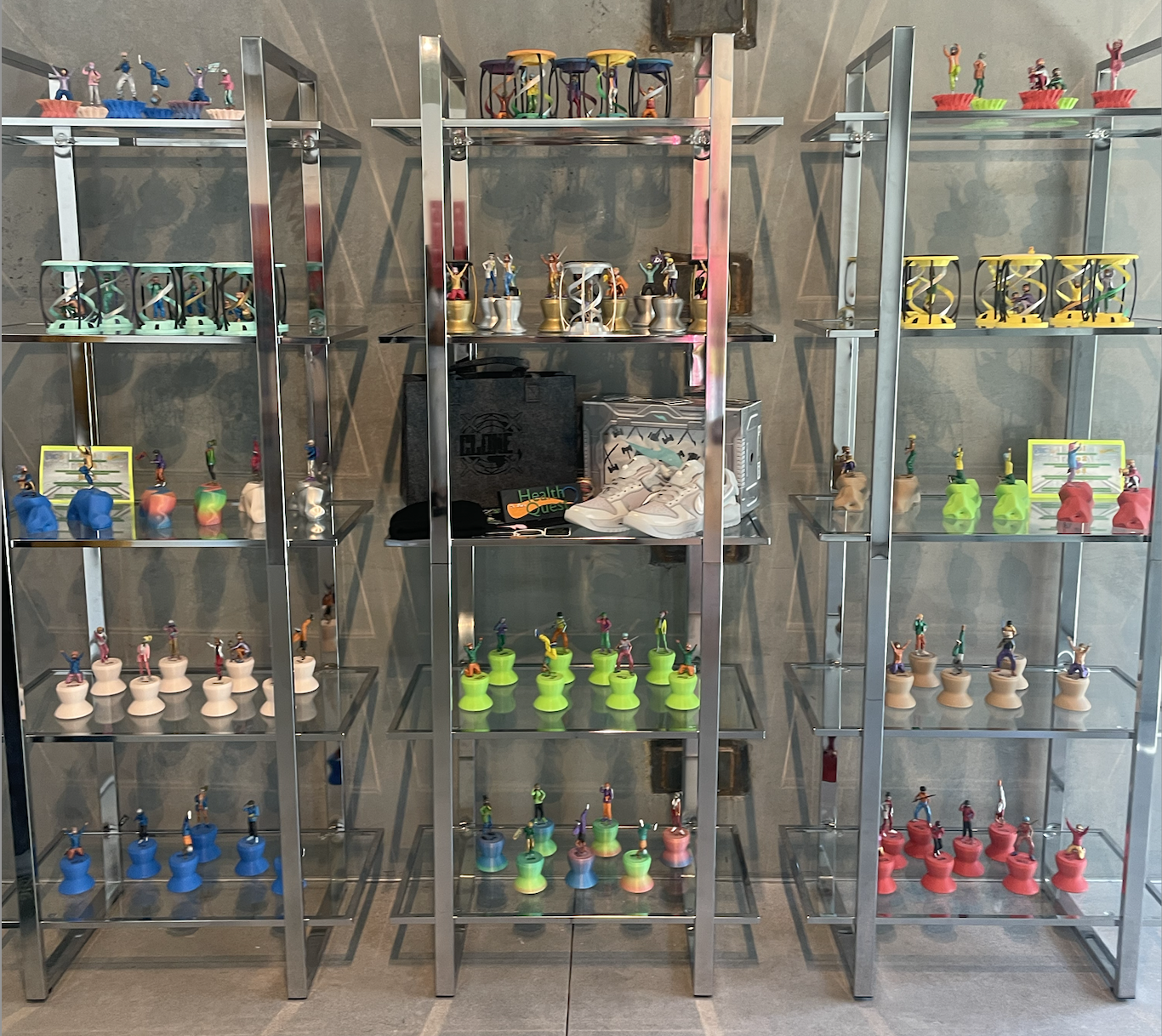
To form an effective, reliable fitness routine, people often turn to state-of-the-art workout equipment, countless dieting advice books and expensive personal trainers.
Now, thanks to one digital passion project produced by an NAU professor and a Phoenix-based artist, learning new and simple ways to build a happy, healthy lifestyle can be as easy as powering up a computer monitor and pressing the arrow keys.
“Health Quest” is a physical wellness education game designed by Hayley Root, an assistant professor for the Department of Physical Therapy and Athletic Training, and metaverse artist Kevin Clark, known professionally as KevinOnEarth.
The duo created the experience as part of the Phoenix Bioscience Core’s third Artist + Researcher Exhibition (ARx3). By pairing creative minds with researchers from Arizona universities, institutes and biotech companies, the initiative aims to translate trailblazing research into a range of artistic mediums, from grand-scale sculptures and evocative paintings to crocheted masterpieces and virtual worlds.
Thousands of hours of development culminate in a grand opening of each year’s exhibit, with the ARx3 teams joining the ranks at the Arizona Science Center on Oct. 23.

For her exhibit entry, Root decided to give health education a serious level-up. She sought to develop an accessible method of incorporating her expertise in athletic training and public health into an interactive world that uses video lessons, workout prompts and community accountability to combat fitness misconceptions and promote health literacy.
“Health Quest is meant to be a quick weekly challenge so that people spend more time applying that information in the real world,” Root said. “I hope the experience helps people build confidence in their ability to try new physical activity pursuits and to learn more about themselves and their health.”
Root’s team was one of eight who spent nine months crafting and revising their ARx3 projects. This process began with a “speed-dating” event in November 2023, where prospective scholars and artists gathered to discuss their goals and skill sets before picking one individual to help them bring their ideas to life.
Root’s eye was instantly drawn to Clark’s portfolio and the idea of bringing tried-and-true fitness guidance to the digital age.
“I immediately knew I wanted to work with Kevin because he creates immersive experiences that can be tailored to an individual’s own journey,” Root said. “My research is in physical literacy promotion – the ability, confidence and desire to stay physically active for life. Each person is going to have different motivations, barriers and support networks on their own lifelong path, so this tailored, immersive journey sounded like a perfect connection.”
The Health Quest project is composed of two components: online gameplay and physical totems. The free-to-play video game includes nine levels where the player traverses precarious platforms in a futuristic salmon-pink cityscape, all the while coming across videos and learning materials encouraging them to move their bodies with confidence and care.
Each level includes challenges and questions that players can use to build healthy habits away from their home offices, like asking users where they engage in physical activities and what new activities they would be willing to try. Additionally, Root hosts weekly virtual meetups through the program to answer any player questions and build a sense of community within Health Quest’s userbase.

When users are struggling to find motivation, the digital experience is also grounded by 99 3D-printed totems, each embedded with an NFC chip that triggers unique events in the Health Quest universe when purchased. Root said these totems serve as miniature reminders of the reasons why someone should take care of their body, with each design connecting to a real-world motivation.
“Some of the totems are warriors, representing someone trying to channel their courage in their health journey, or other totems are of a mother and child, representing how some players may be motivated because they want to stay healthy for their children,” Root said.
In the future, Root and Clark hope to add additional levels to the program, leading to a climactic “boss battle” in which players with exclusive totems will compete for prizes.
Until then, Health Quest players can dive into their workouts knowing that, while one’s relationship with health is not always fun and games, every real-world milestone gets them one step closer to their high score.
To learn more about Health Quest and experience it for yourself, visit oncyber.io/healthquest.

